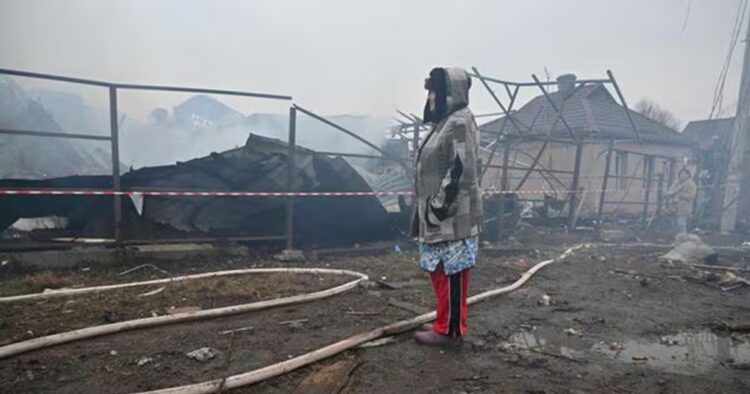In February 2025, the Russia-Ukraine war will enter its fourth year. As of now, the conflict has resulted in more than 200,000 deaths, according to the media reports. As many as 6.7 million people have become refugees, including 400,000 who crossed into Europe seeking safety between January and August 2024, according to the United Nations.
There seems to be no end in tensions in the Middle East, too. Starting in late September, Israeli airstrikes targeted several towns across Lebanon, resulting in the deaths of thousands and the displacement of nearly 900,000 people within the country. A year of Israel- Palestine conflict following the Hamas assault in October 2023 on Israel killed more than 1,000 people and triggered retaliation. An offensive launched by armed groups in 2024 led to the overthrow of the Bashar al-Assad regime in Syria, sparking hopes for an end to the world’s largest displacement crisis.
2024 saw a series of international problems posing challenges to geopolitics. The results were felt beyond their immediate regions, shaping diplomatic relations and strategic priorities across the world. The new and ongoing wars have resulted in about 2,33,000 deaths in 2024, according to the media reports. Half of this number comes primarily from three countries: Ukraine, Palestine, and Myanmar.
Previously, Afghanistan used to be responsible for a major proportion of conflict-related deaths, more so before Taliban’s takeover of the government 2021. However, causalities from Ukraine and Palestine have made up a share of the death toll in the last two years. After a military coup that overthrew the government in 2021, Myanmar also contributed to fatalities in last few years. India’s message to the international community was that reforms in global institutions are important for global peace and development.
“Reform is the key to relevance. Global action must match global ambition,” Prime Minister Narendra Modi said in his address to the UN’s Summit of the Future, in September 2024. Modi’s call for change from the UNGA lectern came amid ongoing global conflicts, including the Ukraine war entering its third year, the Israel-Hamas war, and escalating global threats like terrorism, climate crises, economic inequality, and attacks on women’s rights. Amid these global challenges, India advocated dialogue and diplomacy to arrive at solutions and resolve conflicts.
When Pime Minister Narendra Modi met Ukraine’s President Volodymyr Zelenskyy on the sidelines of the Summit of the Future, he reiterated India’s willingness to play a role in the quest for a peaceful resolution of the conflict through dialogue and diplomacy. Foreign Secretary Vikram Misri emphasised Modi’s commitment to finding a way forward and contributing in any way possible to a resolution of the Russia-Ukraine conflict.
The Modi-Zelenskyy meeting was the third in about as many months. Modi met the Ukrainian leader in Kyiv in August, just weeks following he met Russian President Vladimir Putin in Moscow in July. In June, Modi held a bilateral meeting with Zelenskyy on the sidelines of the G7 Summit in Italy. PM Modi also held bilateral talks with Palestinian President Mahmoud Abbas, expressing concern over the Gaza crisis and advocating a two-state solution for sustainable peace in the region.
The baseline scenario assumes the war will end by late 2025, while the downside scenario predicts it will continue until mid-2026.

















Comments